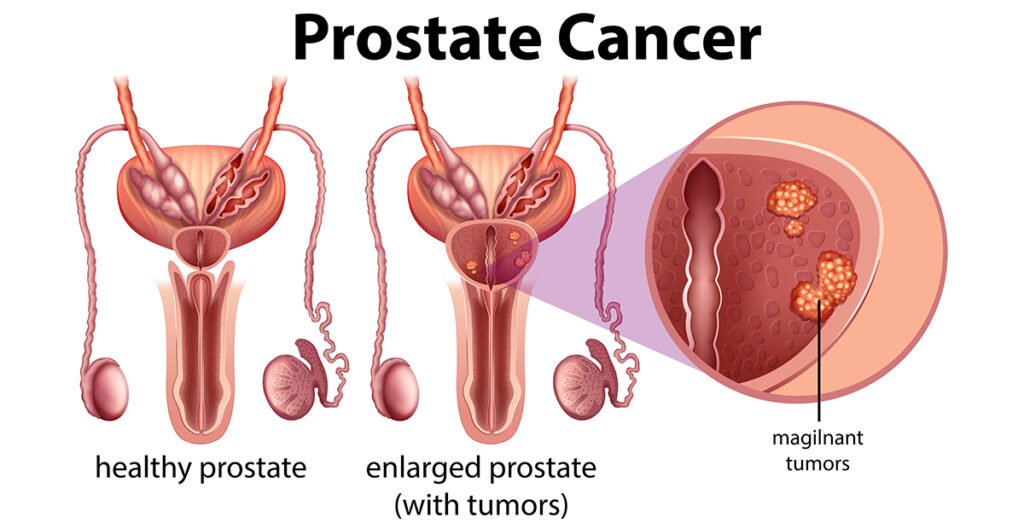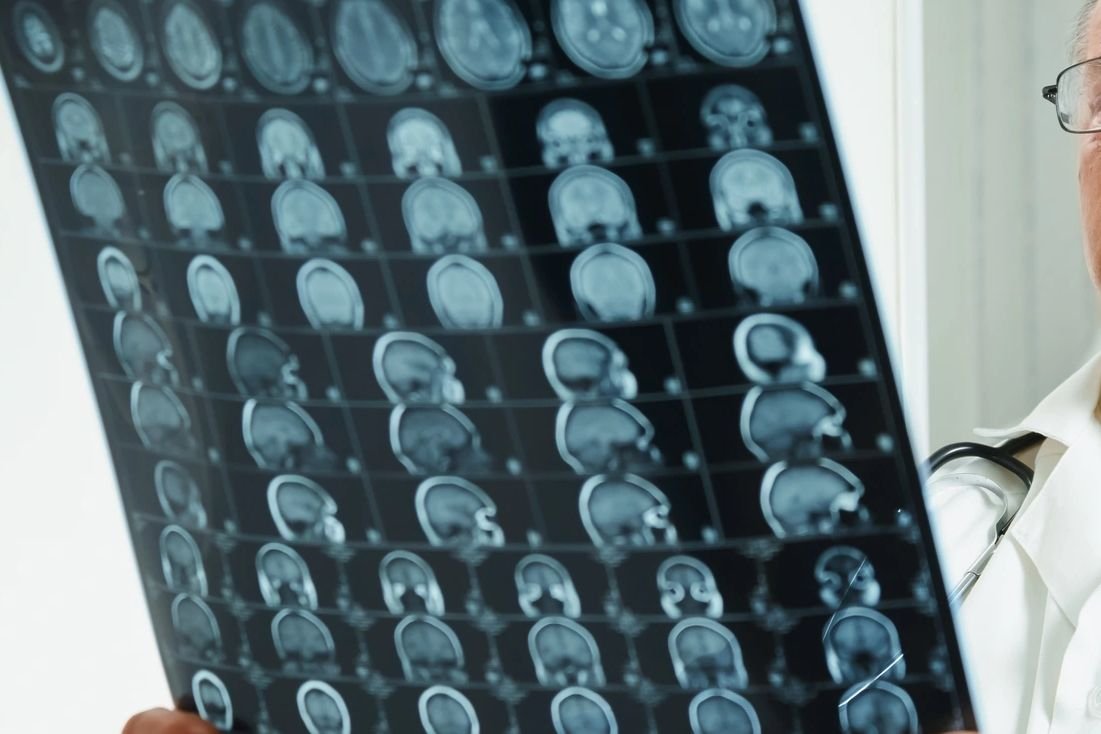Prostate cancer in men: Symptoms, Prevention, and Treatment

Prostate cancer is a type of cancer that develops in the prostate gland in men. The walnut-shaped gland located in the groin in males produces seminal fluid to transport and nourish sperms. While some types of prostate cancers are said to be aggressive and spread quickly, most prostate cancer grows slowly and doesn’t cause serious harm in a majority of patients. However, it can make your body weak, cause a great deal of discomfort and take a toll on the quality of life. Here, we will be discussing prostate cancer, its symptoms, and common treatments in brief.
Symptoms of prostate cancer in men–
Prostate cancer in men may show no or mild symptoms in the initial stages but the signs can become intense as it progresses-
- Trouble urinating
- Change in the stream of urine
- Blood in urine or semen
- Bone pain
- Sudden weight loss
- Erectile dysfunction
Common causes or risk factors of prostate cancer–
While symptoms of prostate cancer can be discomforting, let’s take a look at some of the common causes associated with the debilitating illness-
Age: As you grow older, it puts you at a greater risk of developing serious disorders, including prostate cancer. Around 60% of prostate cancer is diagnosed in men who are over the age of 60 or 65. Elderly men who are diagnosed with prostate cancer may face unique challenges related to the cancer treatment, which can further leave them weak and vulnerable.
Genetics: Prostate cancer runs in families, which means if anyone from your past generations was diagnosed with the illness, you are more likely to get it. This is termed familial prostate cancer. Hereditary PC is rare and around 5% of patients inherit it genetically.
Eating habits: Though studies have proven that there is no direct connection between nutrition and the onset of prostate cancer; some healthcare professionals tout obesity as one of the precursors to many cancer types.
Race: For reasons unknown, it is found that black people are more likely to get prostate cancer as compared to people of other ethnicities across the globe. Besides, cancers are found to be more aggressive and advanced in black people.
Prevention of prostate cancer-
Different factors cause different types of cancers and researchers consistently work to diagnose new facts related to cancers, including their prevention. Although there are no proven ways to prevent prostate cancer, following these preventing tips can lower the risk of developing this illness-
Eat nutritiously- Your eating habits have a direct impact on your health and including a variety of fruits and vegetables in your diet reduces your risk of cancer and other health problems.
Workout regularly– Exercising every day is great for your overall health. It helps you maintain a healthy body weight and boosts your mood. If you’re new to working out, start slow and increase the pace with each passing day.
Quit smoking– Smoking and excessive alcohol consumption are bad not only for your lungs and liver but prostate too. Chain smokers and heavy drinkers are more likely to develop prostate cancer as compared to non-smokers and people who are occasional drinkers.
Treatment options for prostate cancer–
In cancer care, a team of doctors- including a medical oncologist, surgeons, and radiation oncologists work together to customize the best treatment plan for you. This is called a multidisciplinary team and may include healthcare professionals from different departments like palliative care and counselors as well. Some common treatments for prostate cancer are-
Local treatments: Local treatments include chemotherapy and radiation to treat prostate cancer in its very early stages. During the initial stages, cancer may go away with the help of chemo and radiation. If the cancer cells have spread to nearby tissues, you may be prescribed some additional medicines to get rid of the nasty cancer cells.
Surgery: Surgery to treat prostate cancer includes the removal of the entire prostate and seminal glands. A surgical oncologist would work in connection with the radiologist, medical oncologist, and urologist to remove cancer-prone organs and tissues. However, the success and type of the surgery depend on the stage of cancer, the physical health of the patient, and other factors. Some common surgeries for prostate cancer include radical or open prostatectomy, robotic or laparoscopic prostatectomy, bilateral orchiectomy, and transurethral resection of the prostate.
Radiation therapy: Radiation therapy involves the use of high-intensity rays to destroy cancer cells. A doctor who specializes in treating cancer with radiation therapy is called a radiation oncologist. The radiation regime- deciding the intensity of radiation, schedule, and fixing the number of sittings is decided by the radiation oncologists. Some common radiation treatments for prostate cancer include- internal beam radiation therapy, external beam radiation therapy, and intensity-modulated radiation therapy.
Proton therapy: Proton therapy, also known as proton-radiation therapy is a type of radiation treatment that involves the use of proton beams instead of x-rays. At high energy, protons can kill cancer cells and this therapy is prescribed to people with advanced-stage cancers.
Medications: Apart from chemotherapy, surgery, and radiation, medications make less invasive treatments for the management of prostate cancer. Some commonly used medication treatments for prostate cancer are- hormonal therapy, targeted therapy, immunotherapy, radiopharmaceuticals, and bone-modifying drugs.
Getting regular check-ups and monitoring physical symptoms are one of the best preventive measures to lower the risk of prostate cancer. If you’re experiencing urinary health problems or want to get examined for prostate cancer, consult a urologist to get the right diagnosis. Dr. Aditya K Sharma is one of the best urologists in Lucknow and has vast experience in uro-oncology.


